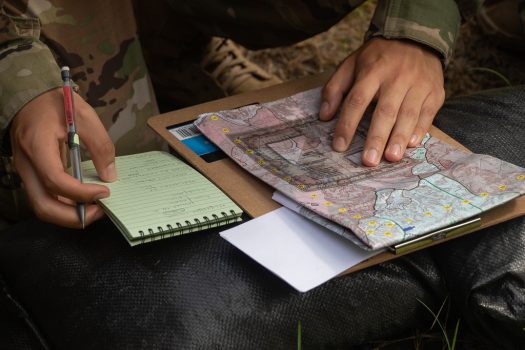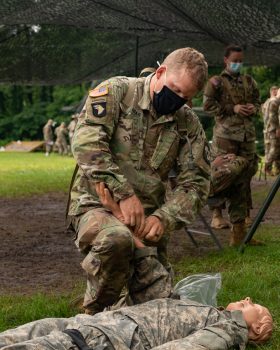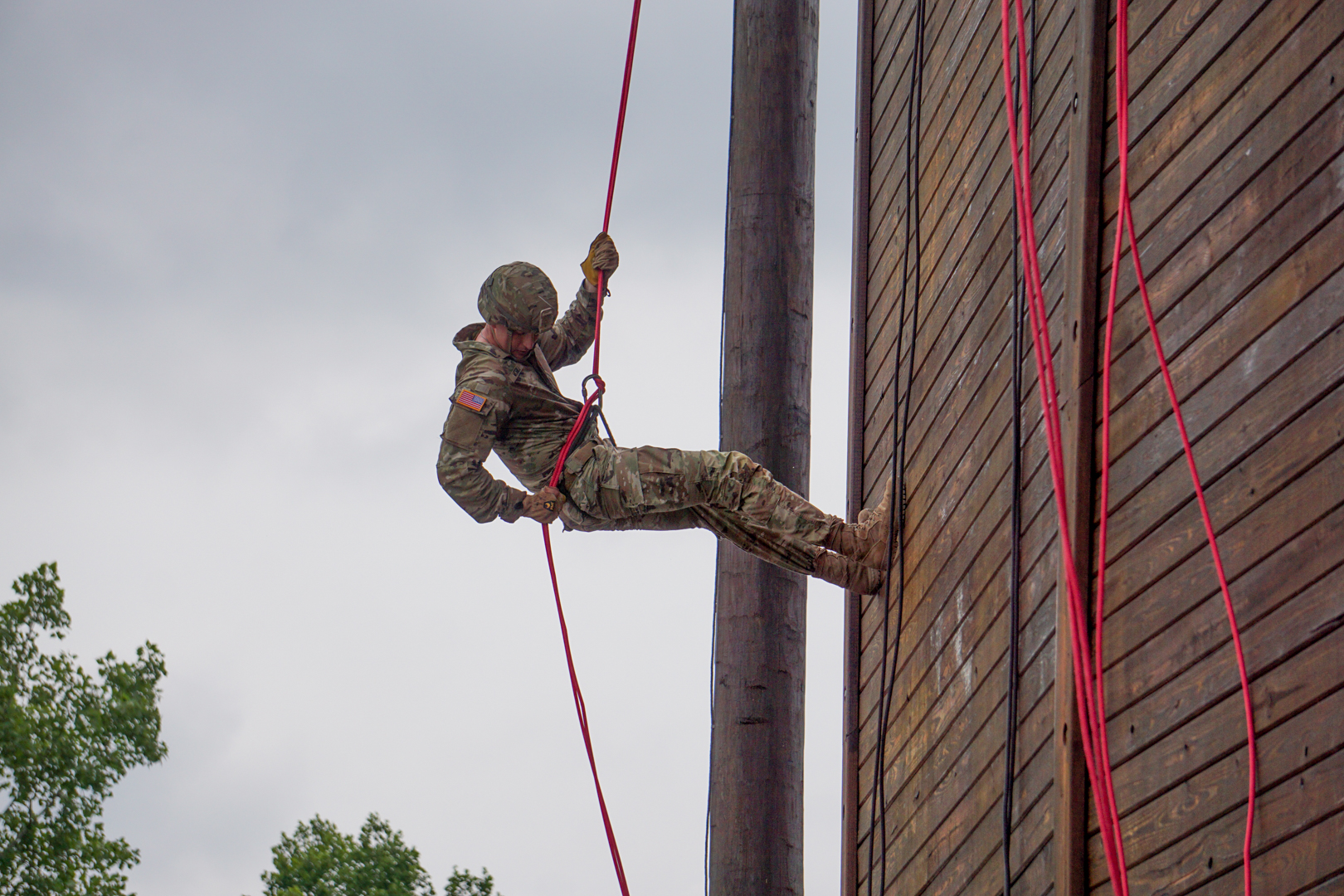Cadets from 11th Regiment Advanced Camp put their lifesaving skills to the test during Warrior Skills training on July 16, 2021. They learned Call for Fire and Tactical Combat Casualty Care (TCCC), two important sets of skills that could potentially save their battle buddies’ lives.
Call for Fire involves suppression of the enemy by indirect fire from field artillery using a radio and target location descriptions to pinpoint the area. Cadets find the location on a map and go through a series of steps communicating messages clearly and quickly with the field artillery unit when soldiers on the ground are unable to use direct fire to reach their target.

During TCCC, Cadets learn crucial first-aid skills necessary to treat injuries. They practice using Rescue Randy, a medical training mannequin simulating an injured Cadet in the field. Cadets are placed into various Cadre-led scenarios where they work to save Randy’s life and are assessed on their comprehension as a final test of their knowledge.
Warrior Skills serves as a learning opportunity for even the most advanced Cadets at Cadet Summer Training (CST).
Cadet Thomas Haas, Austin Peay State University, was an enlisted soldier before joining ROTC. While much of the training at CST is very familiar to him, he sees value in viewing it through new eyes.
“Nothing is brand new to me, but it has been a learning experience. I feel confident but I treat everything as something new and put all my attention into it just like the other Cadets do,” Haas said.
While deployed in Iraq in 2019, Haas had a First Sergeant recommend the Green to Gold program to him, which allows Active Duty enlisted Soldiers to earn a commission as an Army Officer.

“He said the Army needs you to be an officer, that’s where you need to go. He thought this would be where I could make the greatest impact, so I took that to heart,” said Haas.
He explained that Warrior Skills are especially important to Cadets as they become future leaders in the Army because they may have to carry out these tasks in high-stress situations. Haas mentioned that he believes everyone in the Army should be a combat lifesaver.
“You don’t know where you’re going to find yourself on the battlefield and you need to depend on your brothers or sisters in arms and be confident that they can save you,” he said.
Attending CST has motivated Haas to be a mentor for his fellow Cadets by sharing his prior experiences, allowing him to achieve his goals.
“Being here at CST, a lot of the younger Cadets have pushed me to want to do better each and every day. It’s solidified that this is where I want to be and what I want to do.”




